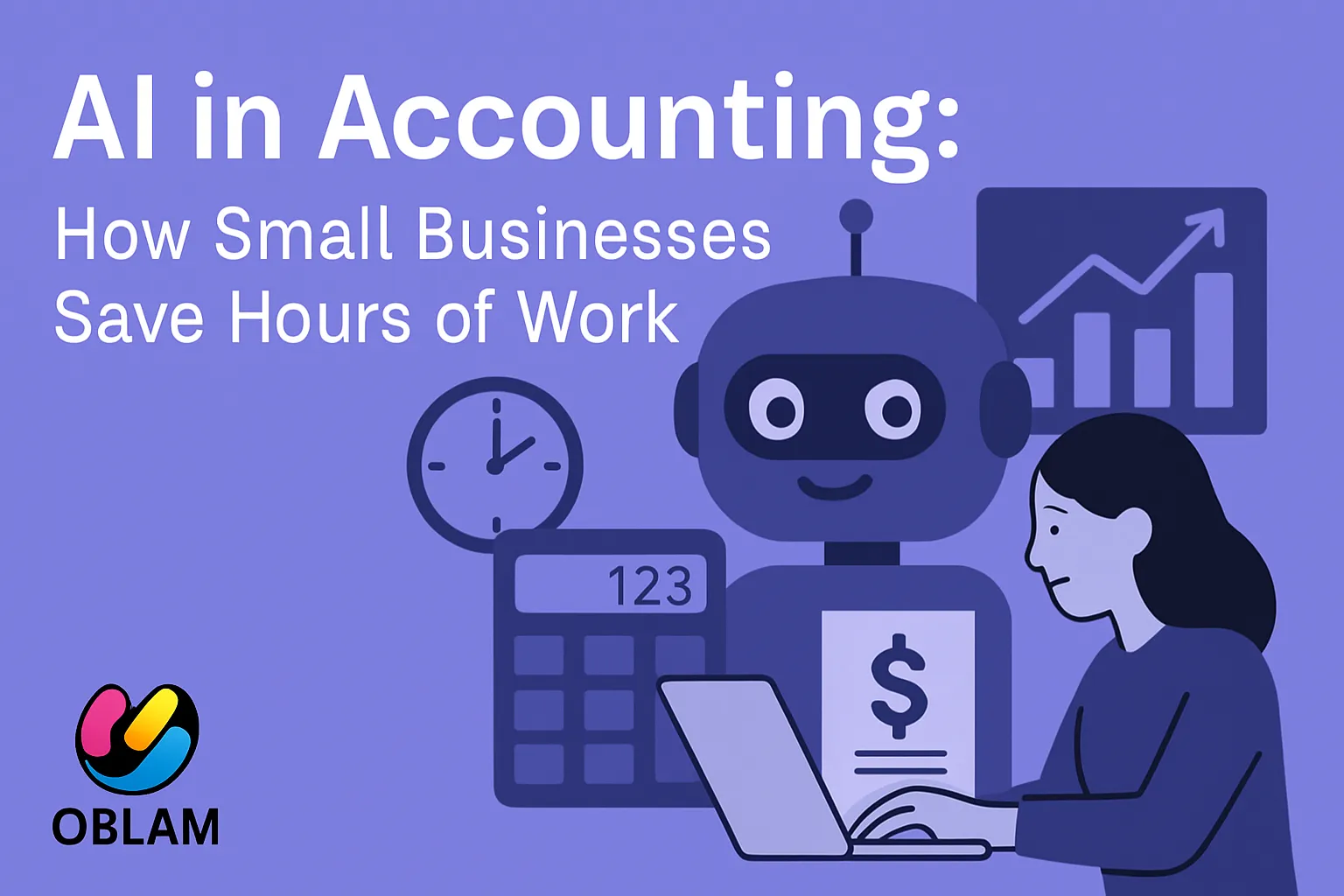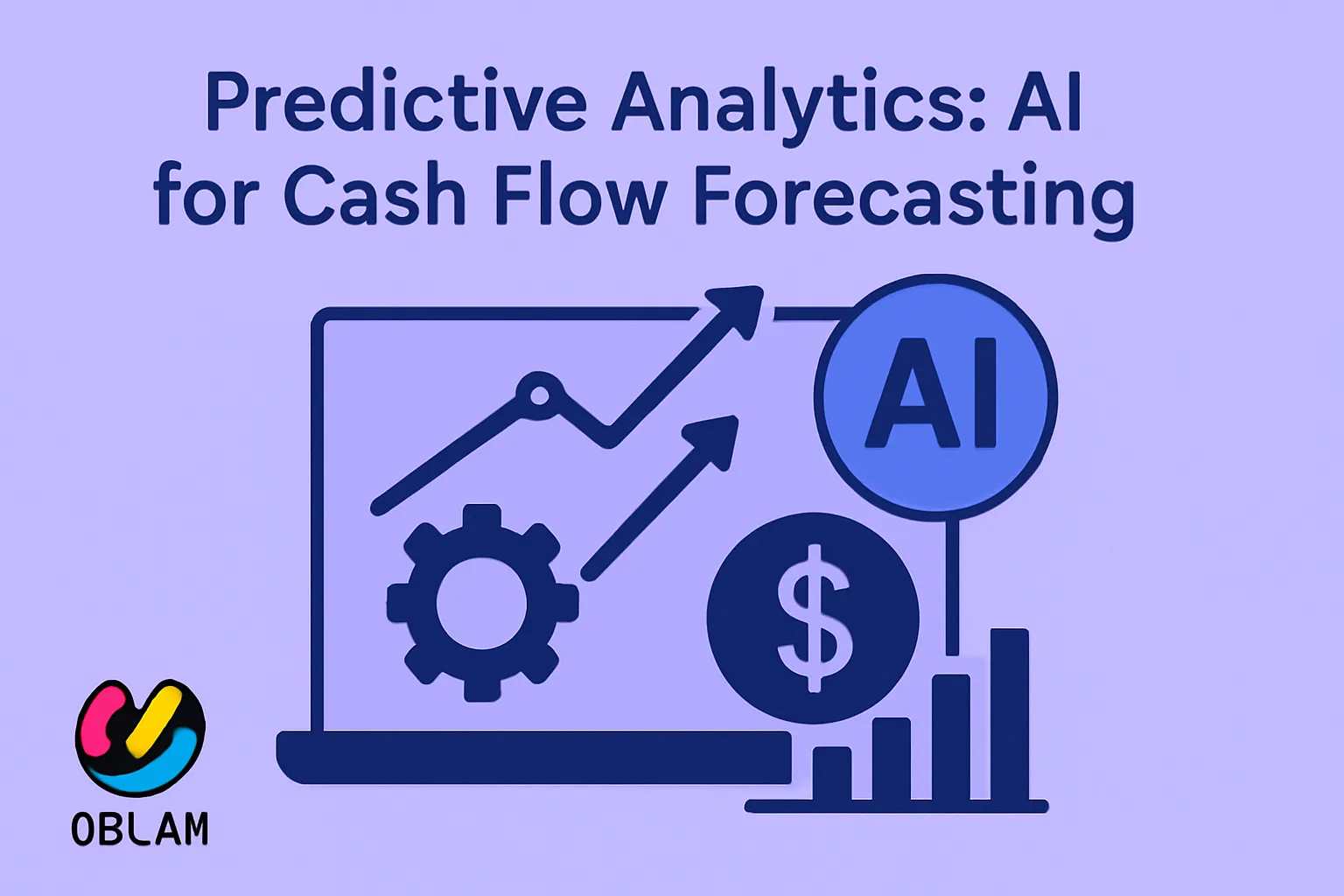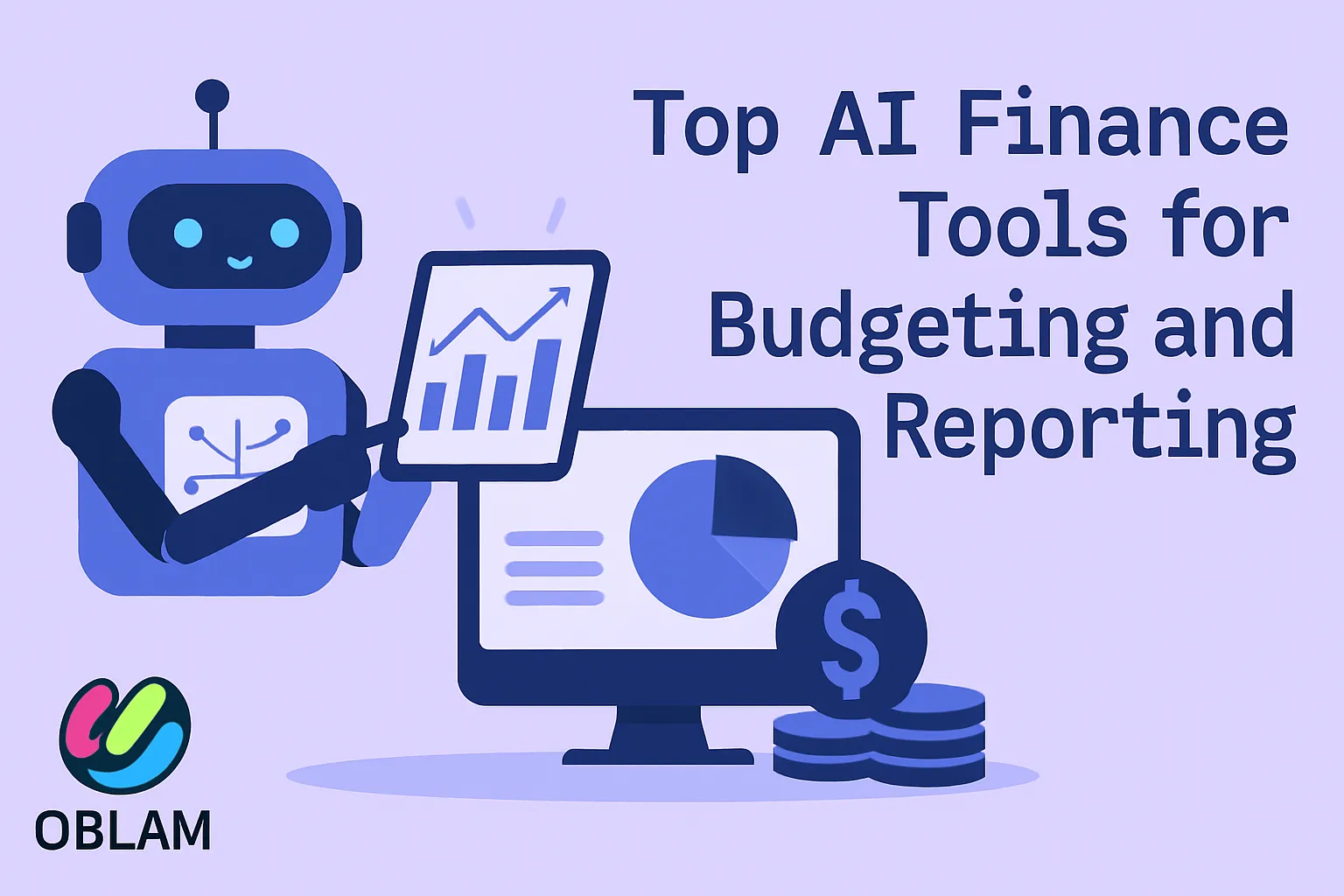- Key Takeaways
- How AI Transforms Accounting
- Essential AI Business Tools
- The Accountant of Tomorrow
- Future of Financial Automation
- Conclusion
- Frequently Asked Questions
Key Takeaways
- AI technologies are revolutionizing accounting by automating routine processes, reducing human error, and increasing the reliability of financial records across diverse business environments.
- Combined with predictive analytics and machine learning, this allows for more accurate forecasting, better budgeting, and adapting financial strategies to the dynamic market conditions.
- Accountants are becoming strategic advisors, using AI-generated insights to guide financial strategies and deepen client relationships.
- AI-powered real-time fraud detection and anomaly analysis increase the capacity to detect and thwart potential financial risks, optimizing financial safety.
- Easy to use AI tools for invoicing, bookkeeping, expense tracking and tax prep simplify workflows and boost productivity for accountants at companies of any scale.
- Ongoing upskilling in data analysis, machine learning, and ethical AI application is imperative if accountants want to continue being effective and trusted in a fast-changing tech world.
AI accounting employs intelligent tools and machine learning to assist with tasks such as invoice categorization, expense monitoring, and data validation. A lot of firms deploy these systems to accelerate work and reduce errors, enabling teams to concentrate on work that requires human skills.
With AI, teams can adhere to guidelines more effectively and complete reports sooner. The following examples demonstrate how these tools operate in practice.
How AI Transforms Accounting

Today, however, sophisticated tools do not just deal with mundane work—they assist in making smart decisions, detecting anomalies, and securing data. The key technologies driving this transition are machine learning, robotic process automation (RPA), and natural language processing.
These tools optimize workflows, accelerate audits, and untangle the most complicated projects.
AI Feature | Benefit | Example Application |
|---|---|---|
RPA | Saves time, lowers cost | Automated invoice data capture |
Machine Learning | Improves accuracy, predicts trends | Cash flow forecasting, fraud detection |
Natural Language Processing | Faster document review, better insights | Analyzing contracts, client emails |
Data Integration | Combines info from many sources | Building deep financial reports |
Real-Time Analytics | Informs quick decisions | KPI dashboards |
1. Beyond Automation
Accountants are not just bean counters anymore. AI automates routine tasks, providing teams additional space to dive into data, consult on strategic decisions, and assist executives with forecasting.
The transition implies that accountants need to figure out how to collaborate with AI, treating it as a resource to enhance their own abilities and output.
AI enables teams to communicate more effectively. It can categorize documents, monitor revisions, and even assist with status reports—streamlining collaboration and client communications.
2. Predictive Insights
AI could analyze historical data and identify trends that no one could detect manually. Machine learning tools adapt as markets evolve, assisting with precise budgets and projections.
Teams can leverage these insights to inform business decisions and get ahead of risks.
With AI, monitoring KPIs is simpler, assisting in demonstrating how healthy a business is at any point.
3. Strategic Advising
Being an accountant now means being a navigator, not a bureaucrat. AI provides information, but humans turn it into guidance.
Hard skills in reading reports and discussing the implications with clients are essential. Clients trust accountants more when they use AI-powered tools to highlight risks, trends, or opportunities.
4. Error Reduction
AI can spot errors in data entry and audits records for precision. It connects all the digits, resolves discrepancies, and ensures compliance.
Once teams know how to wield these tools, mistakes plummet. AI spots issues before they grow.
5. Fraud Detection
AI watches for fraud as it occurs. It searches for anomalies in the figures or suspicious patterns and continues to learn as new frauds emerge.
Teaming up with security pros, AI takes financial info to the next level of safety.
Essential AI Business Tools

AI business tools can disrupt accounting teams. These tools assist in accelerating activities, reducing errors, and taming large data with less effort. Most of the tools now integrate seamlessly with existing accounting software, making the transition easy.
Key tools to watch:
- Automated invoicing platforms (for example, Bill.com, FreshBooks)
- AI bookkeeping software (like Xero, QuickBooks Online)
- Expense tracking solutions (such as Expensify, Zoho Expense)
- Tax preparation platforms (for example, Intuit TurboTax, Avalara)
- AI fraud detection and anomaly monitoring tools
Smart Invoicing
For example, automated invoicing systems leverage AI to dispatch bills and reminders without any human assistance. They organize invoices, identify unusual fees, and ensure prompt billing. This assists teams in monitoring who owes what and when, thus cash flow is more stable.
Smart tools can write detailed reports on what payments are late or missing. Its easy to use interface means that even small teams can keep track of billing with minimal instruction.
Automated Bookkeeping
AI bookkeeping software handles data entry and categorization of each and every transaction. It can even integrate with other money apps, so all accounts remain updated in real time. This means teams can spend less time doing grunt work and more time for error checking or budget planning.
Connecting with payroll or inventory tools makes it even more powerful, saving you as many as 18.5 hours a week. Others are free to begin with but require paid upgrades, while yet others can set you back as much as $25,000 USD to install.
Expense Tracking
AI tools assist workers capture receipt photos, categorize expenditures, and complete reports quickly. Mobile apps make it easy to track costs on the go. Everything from all receipts is synced, error-checked, and categorized to assist you in budgeting better.
These tools detect trends, so teams can strategize and prevent waste. Small businesses can see where cash goes and trim expenses if necessary.
Tax Preparation
AI assists collect and organize tax information, so submitting is simple and safer. It can identify tax savings and screen for mistakes prior to filing. By partnering with human tax pros, AI keeps things precise.
Predictive analytics assists teams to prepare for tax season and remain lawful.
The Accountant of Tomorrow

Accountants across the globe are experiencing massive transformation as AI molds the future of work. We’re moving away from hands-on, rote work toward more expert positions in which they apply decision-making, analytical and troubleshooting abilities. Most in the profession, 80%+ in a recent poll, believe AI is great for the profession.
AI can accelerate tasks, reduce mistakes, and even free up time to improve work-life balance—a primary concern for nearly one-third of accountants.
New Skills
Accountants need to blend technical and soft skills to get ahead. Data analysis, financial modeling and a functional understanding of machine learning are becoming essentials for anyone hoping to work alongside AI. A lot of them come in recognizing the upskilling, with 85% of accountants stating new roles and skills are required.
Soft skills matter too: good communication and clear thinking help explain results, guide clients, and make sense of complex data. Accountants can augment these skills with continuing education and by obtaining certificates in tech and analytics.
New roads are opening, from data specialist to strategic advisor, for easier growth in the field.
Strategic Focus
The accountant of tomorrow isn’t so much the number-masher as the insight-slinger — the one who uses all these insights to guide others in making smart decisions. AI can handle more rote work — like composing technical emails or parsing huge datasets — freeing accountants to handle big picture strategizing.
For instance, 47% of professionals envision AI assisting them respond to clients more quickly and 59% expect to manage larger volumes of data with ease. With AI liberating hours every week, finance teams can now collaborate more closely with other departments, shaping wide strategies and addressing problems before they fester.
Ethical Oversight
AI introduces new risks, so ethics and transparency need to be front and center. Accountants must define guidelines for how AI assistants are employed during accounting decisions. The majority of pros concur—65% believe data security is essential.
That’s ensuring that AI systems are equitable, secure, and transparent. Trust with clients involves revealing how AI arrives at its solutions and ensuring human discretion remains part of the equation.
Future of Financial Automation

AI is transforming the way finance teams operate across the globe. Automation is accelerating and more companies experiment with tools that reduce manual labor. The table below shows some top trends and what they might mean for accounting:
Trend | Anticipated Impact |
|---|---|
AI-powered fraud detection | Faster, more accurate spotting of risks and odd money moves |
Robotic process automation (RPA) | Fewer manual entries, faster close processes, less human error |
Cloud-based AI tools | Easier teamwork, lower costs, better access from anywhere |
Natural language processing (NLP) | Simpler reports, better client chats, faster data search |
GenAI for budgeting/forecasting | Quick insights, smarter plans, more time for analysis |
AI tech will soon make accounting even more seamless. GenAI tools can examine data and identify patterns that humans may overlook. With 71% of tax professionals recommending GenAI use, adoption is rising.
Forecasting and budgeting in less time, with AI slicing through big data sets. Cloud-based AI means teams can work from anywhere, enabling whole groups to easily collaborate with the same data. RPA is now in nearly every large firm, hijacking repetitive tasks such as invoice verifications or data entry.
AI will demand new skills from finance personnel. The proportion of tasks performed by humans could fall from 47% to 33% by 2030. That translates to more emphasis on things like critical thinking, incisive writing, and interpersonal skills.
Some work will move to constructing or operating AI instruments, not simply making journal entries. AI won’t push people out but instead lets them do more creative work—like spotting risks, building trust, or helping clients with big choices.
Experimenting with new AI tools early keeps teams ahead. Companies with test new automation can discover what best and construct workflows that accommodate. The challenge is to continue learning, remain adaptable, and seek innovative applications for these tools.
Conclusion
AI is redefining accounting work. Hours of work now occur in minutes. Data checks, reports and numbers work now go faster and crash less. New tools assist teams in staying ahead of new regulations and detecting trends in real time. Accountants have more time to interact with people and to impart intelligent advice. For instance, small firms deploy AI to monitor expenses in real-time and identify strange figures immediately. Big firms deploy smart bots to vet records prior to audits. Your best bet to keep up is to experiment with these tools and at least learn the fundamentals. To keep your edge, talk to peers and keep learning what’s new in both tech and finance.
Frequently Asked Questions
How does AI improve accounting accuracy?
AI minimizes human mistakes by automating data entry and calculations. It scans big data sets fast, leading to more precise accounting.
What are common AI tools used in accounting?
Some of the most popular AI tools are automated bookkeeping software, invoice processing systems, and AI-powered analytics platforms. These tools assist accountants in saving time and increasing efficiency.
Can AI replace human accountants?
No, AI can’t replace accountants. It takes care of the grunt work, but pros are still required for the sophisticated analyzing, decision-making and client advising.
Is AI in accounting secure?
Absolutely, nearly all AI accounting platforms have robust encryption and security measures to safeguard sensitive financial information. Always select trusted providers and adhere to best security practices.
How does AI help small businesses with accounting?
AI accelerates invoicing, expense tracking, and reporting. This enables small business owners to concentrate more on scaling and less on tedious accounting.
Will AI make accounting jobs obsolete?
AI will transform, not replace, accounting roles. Accountants will spend less time processing mechanical drudgery, and more time strategizing and advising.
What is the future of financial automation with AI?
AI will still make financial operations more efficient, accurate, and insightful in real-time. That’ll all help businesses make quicker, data-informed decisions.



